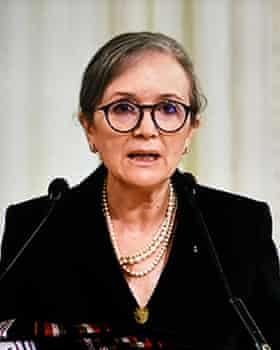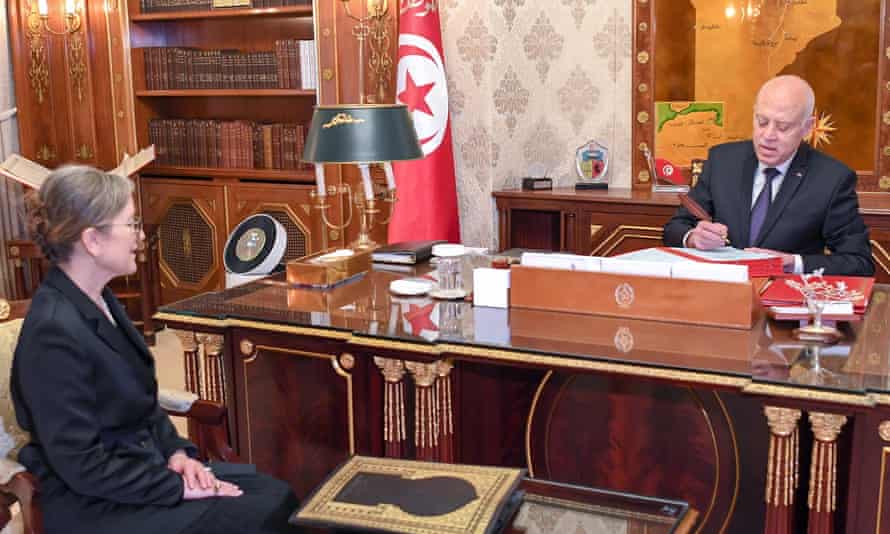Tunisia’s president, Kais Saied, has appointed a new government by decree, 11 weeks after firing the last one in a power grab, as the country faces acute economic and political crises.
State television broadcast a swearing-in ceremony of the cabinet headed by Najla Bouden, the north African country’s first female prime minister.
Bouden said in her first public speech since her nomination that fighting corruption would be the most important aim of the new government.
The trained geologist also pledged to raise living standards of Tunisians and “restore their faith in the state”.
However, Saied has significantly pared back the powers of her office and will technically head the administration himself. On 25 July the president sacked the previous prime minister, Hichem Mechichi, suspended parliament and granted himself judicial powers.
Opponents termed his move a coup but many Tunisians, sick of a political class seen as corrupt and incompetent, initially welcomed it.
Saied, a former legal academic, has repeatedly criticised the constitution Tunisia adopted in 2014, which brought in a mixed parliamentary-presidential system, three years after a revolution overthrew veteran dictator Zine al-Abidine Ben Ali.
The president named Bouden as premier on 29 September, more than two months after sacking the administration of Mechichi and removing lawmakers’ immunity.
In a speech following Monday’s ceremony, Saied reiterated that his moves were constitutional in light of the “imminent peril” facing Tunisia.
He said he had acted to “save the Tunisian state from the clutches of those who lurk at home and abroad, and from those who see their office as booty or as a means to loot public funds”. He also vowed to “cleanse the judiciary”.
Saied, who was elected in late 2019, seized an array of powers amid a socioeconomic crisis aggravated by the Covid-19 pandemic.
The move came as Tunisia faces a looming debt crisis, spiralling inflation and widespread unemployment worsened by the coronavirus pandemic.
Bouden, 63, is a political unknown and is not known to have economic expertise, although the new economy minister, Samir Saied, and finance minister, Sihem Boughdiri, both have experience in financial policy.
Economist and former trade minister Mohsen Hassan last month urged the new administration to return urgently to bail out talks with international donors, saying Tunisia was “paying the price of political instability”, the coronavirus crisis and “the political class’s ignorance of economics”.
Civil society groups have warned of a drift away from democracy and on Sunday at least 6,000 people demonstrated in central Tunis against Saied’s power grab.
Only two members of the previous administration were included in Monday’s lineup: chief diplomat Othman Jarandi and the education minister, Fethi Selouati.
The strategically vital interior ministry will be led by Taoufik Charfeddine, a Saied ally who held the position in 2020 until he was sacked by Mechichi.

Many have seen Saied’s moves as a blow to the Islamist-inspired Ennahda party that has dominated Tunisia‘s post-revolution politics, but some demonstrators in Tunis on Sunday also voiced support for Moncef Marzouki, who served as president between 2011 and 2014 and now lives in Paris.
The president on Monday said he would “make efforts in the coming days” to launch a “genuine national dialogue” involving Tunisians from across the country.
Feminist groups have hailed Bouden’s nomination as a step forward for women in Tunisia, seen as a pioneer for women’s rights in the Arab world.
But many have questioned how much power she will have given that Saied – who has long opposed gender equality in inheritance laws – will have the final say in government decisions.
Ennahda labelled her nomination by presidential decree as “unconstitutional”.





